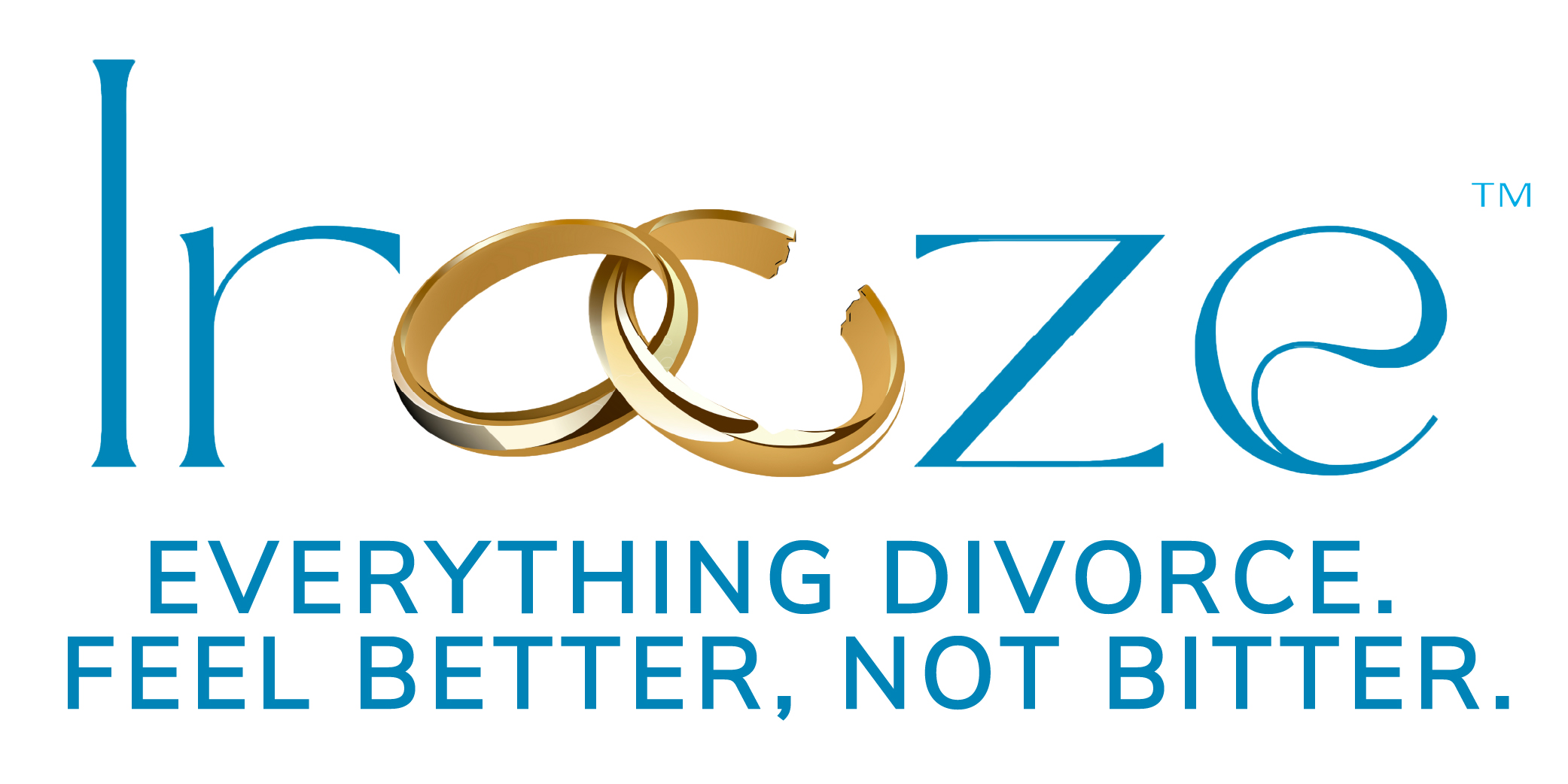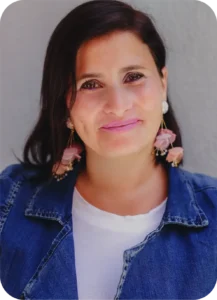The pain of divorce is multi-faceted, it’s a total upheaval of the life and structure that you have lived with, invested in and poured your heart and soul into. While you are dealing with the logistical changes of possibly finding a new place to live, and all the things involved in adjusting to the new physical reality, there is also the emotional upheaval to deal with.
One of the most common challenges is the pain of loneliness, facing the emptiness beside you in bed, the void that the other person has left behind in your life. Even if by the time you are divorcing, you are not getting along, there is still an impact to be felt by the person not sharing your physical space and your daily life anymore.
For many people who find themselves struggling with loneliness after divorce, it can feel overwhelming and unending. It can bring up feelings of failure, being unloved and fears of being alone. In this article, we’ll talk about the underlying roots of that pain, recognizing the triggers, leaning into the grieving process, and way you can shift your perspective to help yourself through the healing process.
For deeper look into the initial emotional shock many people experience, read The Emotional Earthquake of Divorce: Navigating the Shock, which explores how to process the early stages of grief and confusion.
Coping with the Emotional Toll of Divorce Loneliness
The emotional landscape post-divorce can feel like a wild roller coaster or a black hole that leaves you feeling out of control and hopeless. It’s not uncommon for divorce to trigger feelings of failure, or the fear or failure through self-judgment or the fear of the judgment of others. Regret and self-blame can take you down the dark tunnels of revisiting everything you’ve done or said in the past and placing the target of yourself at fault.
It’s easy to understand why you may feel that way, since a divorce essentially indicates a failure in the relationship, but that doesn’t mean that you are the failure. Relationships are hard, they take a lot of work from both parties for them to succeed. As human beings, we all have our faults and our strengths, and in this imperfect world, not everything works out the way we hope or envision.
Each and every one of us wants to be loved. And that deep desire within you will be challenged after your divorce by other fears such as being alone forever. The future is always uncertain, but marriage does tend to give us a feeling of security. When going through a divorce, that security is taken away, and the worry can set in that we’ll be facing a future without a partner in life. It’s a normal fear, since as human beings we are wired to seek out partnership, and most individuals yearn for a committed and loving relationship.
Worrying about what may or not be in the future can compound the feeling of loneliness, causing you to tell yourself things like “I’ll always be alone now”, and contribute to the idea that it will always be this way, and lead to further fears of being unloved.
The Emotional and Physical Impact of Divorce Loneliness on Self-Worth
Fears of being unloved are tightly tied into the fear of being alone, they feed into each other. Your feelings of self-worth are going to figure prominently and be targeted by these fears. If your sense of self-worth is low, your mind will tell you things like “why would someone love me now?”, “no one will love me because I’m not worth it and so I’ll be alone forever”. Those compounded self-doubts can sink you further into loneliness.
Loneliness after divorce doesn’t just hurt emotionally it can take a physical toll as well. You may experience symptoms such as fatigue, changes in appetite, trouble sleeping, muscle tension, or even frequent illnesses due to a weakened immune response. These physical effects are your body’s way of reacting to emotional stress. Recognizing this connection is important so that you can be proactive in taking care of both your mind and body during this transition.
Common Triggers of Post-Divorce Loneliness and Social Comparison

Added to what you’re struggling with inside your mind and heart during this time, you’ll be inevitably faced with external situations that will trigger the pain you’re going through.
When we look at others around us, it’s natural to compare what we see to our own lives. When you’re coping with the aftermath of a divorce, seeing other couples who seem to be happy, or seeing family units can be a pain point, highlighting the new reality of our own life. We see others, even those close family members or friends around us living in the structure that we are now grieving the loss of in our own life. It can be hard to be around that, and it’s understandable that it can make you feel even more lonely when you witness it.
Shared social circles can become a source of stress post-divorce. You may feel unsure about attending events where your ex might be present, or experience anxiety about being “sided against.” Try to communicate boundaries clearly with mutual friends, and don’t hesitate to create some new social spaces for yourself. Building your own tribe can empower you and reduce feelings of alienation.
The Hidden Dangers of Social Media and Negative Self-Talk After Divorce
Social media is another space that can be a sensitive touch point. Remember that most of what we see on social media is often curated, set up and planned. The online world has become a place where we want to show others how amazing our lives are and how happy we are, but remember that no one’s life is perfect. You don’t know what goes on behind the screen, so to speak, and so while it is easy to compare ourselves to what we see online, it can actually be quite damaging to fall into that, especially when what we’re comparing ourselves to is often staged and false.
Above all, sometimes we are the cause of intensifying our own pain. The kind of self-talk we engage in will be instrumental in how you see your situation post-divorce. Falling into narratives of guilt, self-blame and shame for the breakdown of your relationship, comparing yourself to others and finding yourself wanting, and tying in the feelings of failure will all weigh down heavily into your feelings of loneliness, feeling that no one else will love you or want to have a relationship with you. Succumbing to negative thought spirals like this will keep you feeling isolated, alone and lonely.
How to Reframe and Overcome Loneliness After Divorce
In this article we have talked about all the factors that can contribute to you feeling lonely after your divorce. Let’s look now at some tips on how you can help yourself shift out of that state and move forward in your healing.
Focus on What You Do Have:
We as human beings tend to maintain a negative bias or outlook; essentially what that means is that we are naturally more inclined to focus on and hold on to the negative rather than the positive. With mindful intention, it’s important to turn that focus to the positive. When you find yourself ruminating on what you DON’T have (i.e. a partner, the life you had before, etc.), consciously turn your thoughts to what you DO have. Cultivate gratitude and awareness of the positive features of your life, for example the love of your children, the support of your friends and family, your lifestyle, etc.
Acknowledge the Strength Found in Single Parenthood:
Raising your children as a single parent is no small feat! It takes resilience, courage, and perseverance, to name just a few empowering qualities, even if the other parent is in the picture and sharing time with the kids. Celebrate and honor yourself for everything you do in that regard. While it can feel lonely on the days or weekends when the kids are not with you, reframe that time as an opportunity to indulge in well-deserved rest and self-care.
Loneliness as an Opportunity for Growth:
Another way to shift your perspective is to view your feelings of loneliness as an opportunity for self-discovery and growth. Use the time to explore new activities or to participate in ones you always loved. Being alone doesn’t have to automatically equal loneliness, as it can reveal new pathways to becoming your best self. Turn your loneliness into a journey of transformation and self-love.
Those quiet days when your children are with the other parent can feel particularly empty, and especially if your identity has been closely tied to being a full-time caregiver. Use that time to rediscover hobbies, friendships, or goals that may have been put on hold. This alone time is a loss, but it’s also a gift of space to reclaim parts of yourself.
Eventually, you may wonder if or when you’re ready to date again. There’s no set timeline because healing is personal. Start by rebuilding your relationship with yourself first. When you do choose to explore new connections, go slowly and intentionally. Consider what you’ve learned from your past relationship and what you now want in a partner. Dating after divorce is finding someone and about discovering how you show up for yourself in love moving forward.
It will take a mindful and conscious effort on your part to find the positive and shift your mindset, but it will be well worth it.
Grieving the End of a Marriage: How to Embrace the Healing Process

All that said, the healing and grieving process is one that has no definite timeline; each person walks that journey in a different way. There is not deadline to follow. While it’s important to hold an awareness around your feelings, their intensity and ways to help you reframe your situation in a more positive way, it is equally important to give yourself the time to grieve without self-judgment or comparison to others.
When we talk about grief, we generally mean with regards to death, but the end of a marriage is a similar life event, in that you have lost the life, the structure, the partner that you built a portion of your adult life with, who you emotionally invested all of yourself with. The end of that encapsulated time in your life has the same emotional impact as that of losing a loved one in death. As such, it is important to allow yourself time to grieve its loss, and understand as well that you will have good days and bad days.
Healing never happens in a straight line, it’s more of a jumbly, squiggly line that doubles back on itself at times. Give yourself grace and compassion and allow yourself to feel what you need to feel, while being mindful of ways that you can support yourself.
Top Tips for Navigating Divorce Loneliness and Healing
We gave you three ways to reframe feelings of loneliness in this article, and here we have some more tips to help you navigate those emotions and work toward your self-healing.
1. Self-Care Practices:
Tending to your mental and physical well-being is crucial and should be a priority. Explore and create some simple daily rituals that can be your touchstones, such as a 5-minute gratitude practice or journaling session, morning walks, workouts, whatever activities, no matter how quick or intensive to build your self-confidence, self-trust and positive, appreciative outlook on life.
2. Learning to Be Alone and Embracing Solitude:
Spending time alone is an opportunity to connect with yourself, to engage in self-reflection and move your healing and growth journey forward. You may even want to try to “date” yourself, taking yourself out for special outings on your own for quality time with yourself! Take yourself to that restaurant you’ve been dying to try, or get the massage you’ve been wanting. Do the things you have been wanting to do as a gift to yourself.
3. Balanced Social Connections:
While having your support system of friends and family around you is essential, there is a point when spending all of your time with them could end up being a crutch to help you avoid those feelings of loneliness and distract you from your healing. Remember to reserve time for yourself to date yourself and to reconnect with yourself.
4. Exploring New Activities and Creative Outlets:
As mentioned above, participating in activities that bring you joy is a pro-active step in the healing process. If you’re not sure what to do, even better, this is your opportunity to try new things, and discover your strengths and interests. Finding new ways of creative expression will serve as release outlets for your emotions, and feed into your healing process.
Consider professional therapy or counseling as part of your healing journey. Talking to a therapist can help you process emotions you might not be able to untangle alone, especially if your divorce involved trauma, betrayal, or abuse. Therapy offers a safe, non-judgmental space to explore your fears, rebuild self-esteem, and work through lingering guilt or anger. If one-on-one therapy feels intimidating, group therapy or divorce support circles can offer both emotional validation and practical tools.
5. Finding Community and Support:
Support groups or new social circles of like-minded people is a great way to expand your support system and to receive emotional support for what you’re feeling and experiencing during this time.
While it is very painful, that overwhelming feeling of loneliness after divorce is not permanent. It is a temporary emotion that results as your heart and mind attempt to adjust, grieve and accept the new reality of your life post-divorce. If you are experiencing this now, it is important to keep the tips we listed in mind and incorporate them into your mindset and daily life as you feel ready. Healing after divorce is possible, one step at a time; with mindset shifts, patience and self-compassion, the journey can be one of self-discovery and adventure.
If you’re struggling with feeling lonely after your divorce and are looking for support, explore the Divorce Directory to find coaches and counselors with a wide range of specialties. You can browse through their articles and interviews to get an idea of who they are and if they might be a good fit for you to work with. If you’re not sure where to start, take the Self-Assessment and receive a free Strategy Session with a Divorce Specialist who can give you clarity on your priorities and help you map out your next steps.
Disclaimer:
The information provided in this article is intended for general informational purposes only and is not a substitute for professional advice, diagnosis, or treatment. As a certified life coach, I aim to support and guide individuals in their personal growth and development. The content of this article should not be used as the sole basis for making decisions regarding your well-being. Always consult with a qualified professional before making any significant changes to your life or treatment plan.





